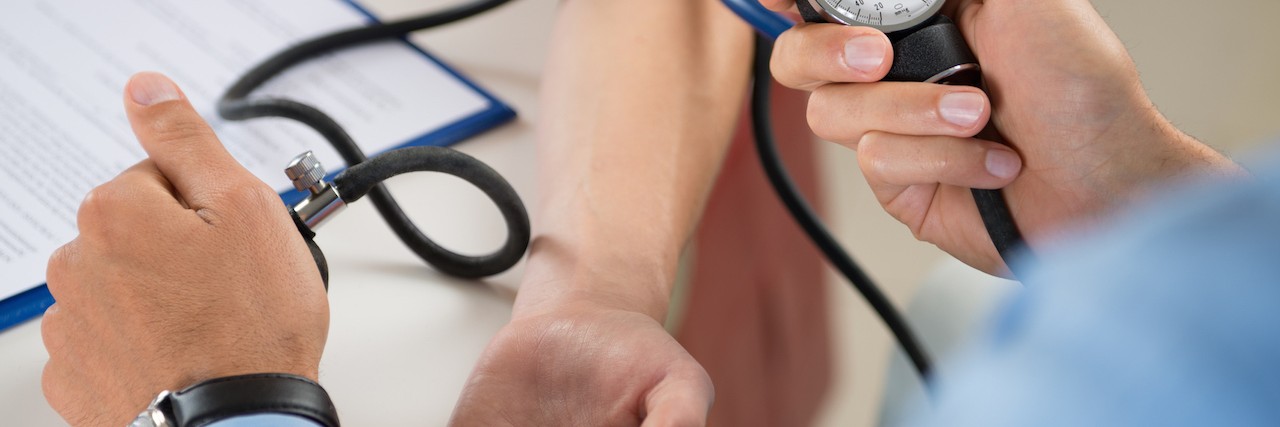When a Doctor Finally Told Me What I Needed to Hear About Living With Hypochondria
Every cough is a predictor of lung cancer; every ache is a sign of some kind of skeletal disease; every headache is a brain tumor. Essentially, every bodily “abnormality” is a catastrophic illness.
This is life with hypochondriasis, or its kinder, gentler euphemisms: illness anxiety disorder or somatic symptom disorder. Yes, chances are you’re fine — you’re not dying and not suffering from some debilitating but unseen disease. However, the feelings and the certainty are all too real for those of us who know there is something terrible happening in our bodies, just below the surface.
Right now as I am writing this, my back hurts. This vague but persistent ache is in between my shoulder blades: I’m almost certain it’s my heart or some kind of tumor on my spine. Right now, I am resisting the urge to go online and find confirmation of this on WebMd, but that’s a whole different issue called, appropriately, cyberchondria. The point is, while most people would simply say “my back hurts,” get an ice pack and leave it at that, I cannot help but think I am headed for an imminent and unpleasant death and that this back pain is only the beginning.
Later today, there will undoubtedly be different bodily sensations. Whether it is a headache from staring at my computer screen (brain tumor), neck pain from tilting my head in the same position for too long (lymphoma), or heart palpitations from too much coffee (heart attack), my brain will probably diagnose my body with something awful. Once the diagnosis has been made, the thoughts will snowball. “Thought-stopping” and “mindfulness” are beautiful ideas, but they are difficult to put into practice when you are having a hypochondriac episode which, by the way, can last for days, even weeks or months. A few summers ago, I spent months and a lot of money visiting doctors, waiting for one to tell me I was terminally ill. I visited two emergency rooms at two different hospitals. I went to every urgent care within a 30-mile radius. I had EKGs, X-rays, even a CT scan. The diagnosis? I was fine. At age 34, I couldn’t believe I hadn’t yet succumbed to one of the diseases my brain had convinced me I had.
Surprisingly, it was an oral surgeon — not a psychologist or psychiatrist — who told me something I never forgot. I went to him because a discoloration on my tongue had convinced me I had oral cancer. This had gone on for months and had been accompanied by jaw pain and other vague feelings of oral discomfort. After a thorough examination determined that it was, in fact, not cancer, I asked the doctor, “What is it then?” (People with health anxiety usually do not rest until a diagnosis is made: that’s why we spend so much time and money seeking one out.)
The doctor said, “It’s just your brain remembering the pain.”
That statement has stayed with me. We should never underestimate the power of our minds to convince us of anything, rational or not. A few years ago, today’s back pain would have sent me running to the doctor or even hospital. Today, while it still concerns me, it won’t take over or ruin the day because it is most likely my brain sending me a catastrophic but misplaced thought I can focus on lessening in intensity. I can breathe. I can remember the progress I’ve made. I can give myself a break. I am probably not dying.
The Mighty is asking the following: What’s the best thing a medical professional has said to you related to your (or a loved one’s) disability, disease or mental illness? Check out our Submit a Story page for more about our submission guidelines.

